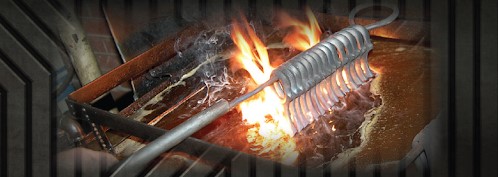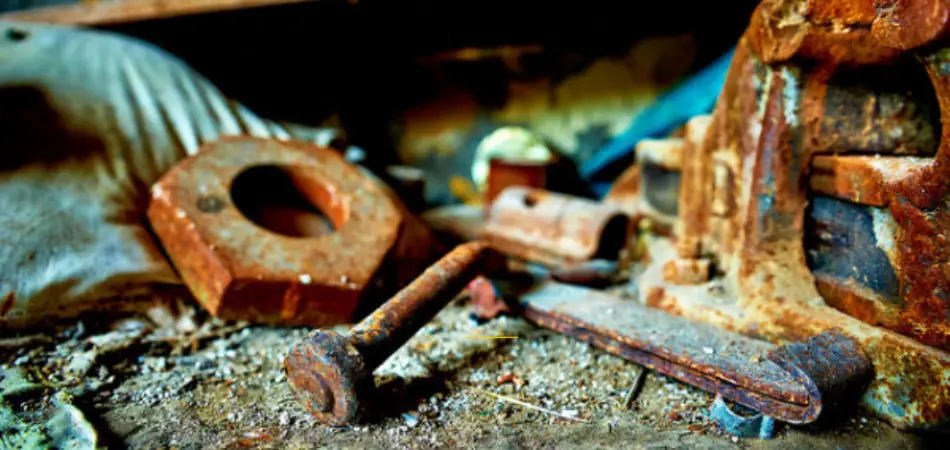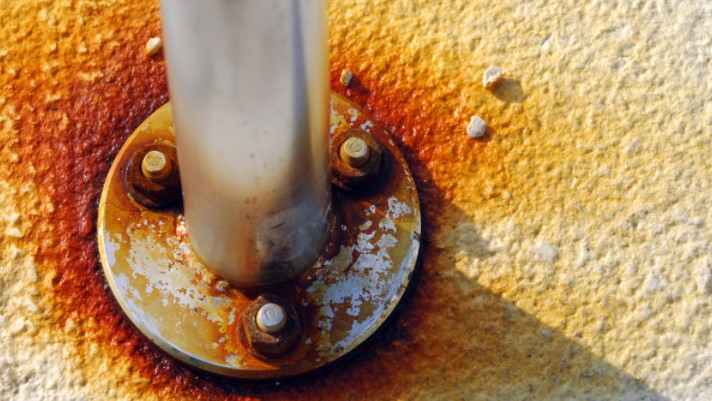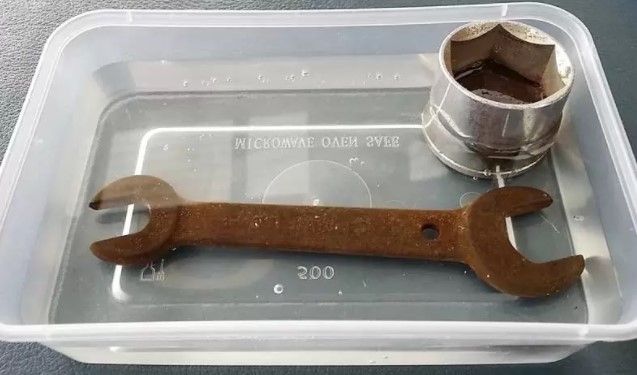If any chemical component evades metals and almost turns them worthless, then it is rust. Rust refers to the flaky look that firms on metals once iron reacts with oxygen. It reduces the performance of the metal, renders it weak, and inhibits you from utilizing its full potential. However, does oil quenching prevent rust?
Yes, Oil quenching can prevent rust, but only if it is done correctly. The flash and residual surface temperature must be reduced sufficiently for the steel to form an iron oxide layer that prevents red rust from forming. Otherwise, you do not get sufficient protection against rust.
Tossing a rusted, oil-soaked part into the oil quench tank is a way to prevent additional rust on the surface of the part. The lower viscosity of oil allows for faster quenching than water. Oil quenching results in less distortion and warpage than water quenching.
Therefore, the quench oil bath serves an important task at the end of a heat-treating process to cool metal quickly. Not only does an oil quench reduce the time taken to cool parts, but it also produces a consistent outcome that helps you produce high-quality parts that are resistant to rust.
You should read further to know more about Oil quenching, its application, and how it helps to make the metal stronger and last longer.
Contents
What is Oil Quenching?
Quenching is the process of cooling a machine piece after giving it the heat treatment. Oil quenching is the process of utilizing oil as a cooling medium for metals that have just gotten the heat treatment to make it stronger or harder. Although there are other methods (air, water, and brine) of cooling metals, oil quenching is often better to use when one wants to achieve other purposes such as blackening metals. Besides, oil quenching transfers heat quickly to the metal without causing any form of distortion to it. Besides, the use of oil for the quenching process makes it adjustable for different purposes. That is, you can modify its temperature, viscosity, and other properties with various additives to suit your needs. Depending on your needs, the various types of oil that are used for the quenching process include engine oil, food-grade oil (vegetable oil), mineral and transmission oil, and some specialized quenching oil.

Does Oil Quenching Prevent Rust?
Now that we have learned what oil quenching means, can we then say that the process prevents rust? To some extent, oil quenching can protect metals from rust. However, this is a temporary solution and may not give you the desired result. As a result, you may want to try other methods that keep your metals more shiny and intact. Nonetheless, oil quenching can prevent rust from developing on metals.

What Other Methods Can Prevent Metals from Rust?
Although oil quenching can prevent rust from metals, it is not usually the best method of protecting ferrous metals from rust. Other better methods can keep your metals intact and eliminate rusts. Some of these methods include:

Forced Passivation
This process involves corroding the first layer of metals into an iron oxide or black oxide and creating patinas that seal off the metal. The only difference to this process is that it doesn’t work for many metallic substances such as copper or chromium under gular environmental conditions. As a result, the top later could get distorted which will make you refine the whole object. Doing this involves two processes. The first is “bluing” which is done to guns and then, “blackening” which is applied to machines through the use of various chemicals.
Applied Sealants
Many iron or other metallic products are often coated by various substances to prevent rust from taking place. These substances include:
Polymerized Oil
Polymerized oil, especially linseed oil, is one of the best finishes to apply to iron products. You could quench it in oil, paint the object with the oil, and torch it to produce a traditional brown-black color that seals the iron.
Hot-Dip Galvanization
In this method, zinc is applied to iron or steel in a molten medium. Zinc galvanization is often beneficial to your metals. First, it creates a patina that seals the iron and the zinc off. Besides, zinc is more active when you apply it and often acts as a “sacrificial anode” to metal. In other words, it slows down corrosion and protects the metal below.
Electroplating
In this process, you apply zinc to a metallic object by running electrical charges through the object and then spraying it with charged zinc particles. This gives room for electrical bonding that becomes uniform and protects the metal’s surface.
Powder-Coating
Powder-coating occurs when the metal and the sealant are electrostatically charged to prevent moisture from contacting the metal. Here, a molecular bond occurs during the charging to prevent the tiniest moisture from getting to the iron. Then, a resinous powder is baked onto the object in a hot oven to form the final coat. This coat provides the best protection for your metal as it requires little maintenance and makes the luster last for years.
Paint
Paint remains a popular and the most versatile sealant ever applied to metals. It is inexpensive and performs a very good job in protecting iron or steel from rust. Although it gets affected by varying weather conditions where it can crack or wear down, you can simply sand the surface and reapply your paint all over again. However, some downsides of paint can expose your metals. For instance, the tiniest hole in the sealant player could expose your iron to oxygen and begin to rust. Irrespective of this downside, many individuals prefer to use it as one can easily manage and provide solutions where necessary.
Does Oil Stop Rust?
Yes, oil does stop rust. They protect the metals from corrosion and further damages. Although they are easy to see on the exterior part of a metallic object, they also occur in the interior part of the object. This occurs when you are not utilizing the proper oil for your engine or other objects.

Conclusion
Oil quenching prevents rust and any other further damages to an object. Although it may not give you the desired look, it is one of the best and cheapest methods to prevent your object from rusting.

